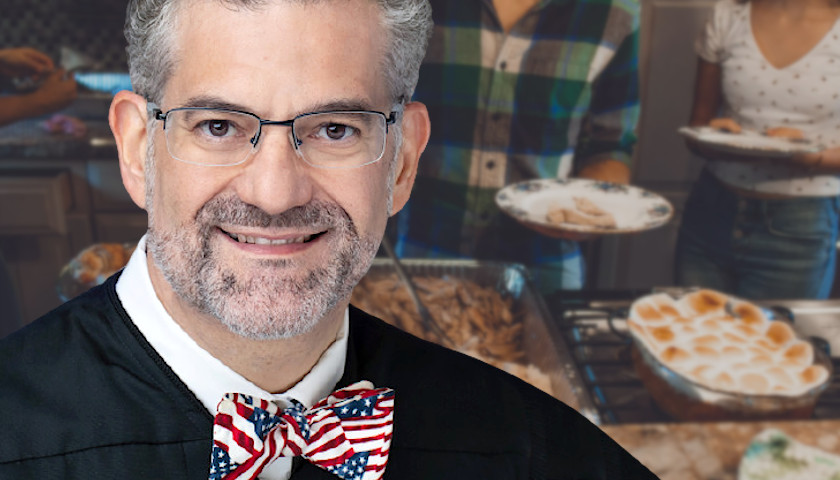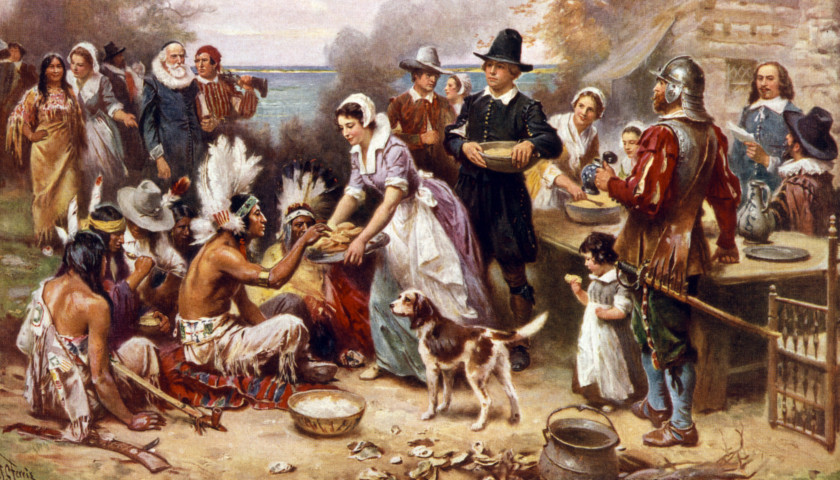by Judge Michael Warren
Turkey and stuffing. Detroit Lions Football. Turkey Trots. Parades and the arrival of Santa. Followed by frenzied shopping on Black Friday and Cyber Monday. Maybe a bit of charity on Giving Tuesday. The ultimate American holiday. What more could you need?
Gratitude. Blessings. Humility. Although historical debate surrounds the origins of Thanksgiving in colonial America, it has a deeply rooted core that today is overshadowed by consumerism and entertainment culture.
The Pilgrims – English religious dissenters from the Church of England – settled in Plymouth in 1620. They made history by seeking an asylum of religious liberty and swearing to the Mayflower Compact – quite possibly the first written agreement among men about how to govern a new government. They were quickly struck with the “great sickness” and began to starve. In a year, nearly half died. In 1621, with the help of Wampahnoag Native Americans – especially Samoset and Squanto – they survived and actually flourished. They held a huge 3 day feast – but it was not considered a thanksgiving by the Pilgrims. That would come two years later when the Pilgrims were facing a brutal drought. Governor William Bradford led the People in fervent prayer to the Almighty for relief. Although there was not a cloud in the sky, in a few hours the heavens opened with the perfect rain, and they were saved. Bradford declared a day of Thanksgiving, including a large feast, giving homage to God for their gratitude.
Afterwards, colonial Governors periodically proclaimed days of Thanksgiving to the Supreme Being in response to various favorable events and conditions. The first continental wide celebration waited until 1777 when the Continental Congress declared a Thanksgiving for the victory at the Battle of Saratoga. Others followed.
When George Washington became President, Congress asked him to declare a Thanksgiving for the amazing accomplishments of the first Congress, including the Bill of Rights and setting up a functioning federal government. Washington declared a Thanksgiving for the fourth Thursday in November. His proclamation recommended that the People devote the day “to the service of that great and glorious Being who is the beneficent author of all that good that was, that is, or that will be; that we may all unite in rendering Him our sincere and humble thanks for his Kind care and protection . . for the signal and manifold mercies and favorable interpositions of His providence” during the American Revolution, creating the federal Constitution, and protecting the “civil and religious liberty with which we are blessed . . . .”
Presidents Adams and Madison followed suit – and then silence.
Thanksgiving’s resurrection occurred when Sarah Josepha Hale convinced President Lincoln to declare Thanksgiving during the Civil War. Despite the carnage, Lincoln’s Proclamation explained several reasons the nation should be thankful, and remarked with humility that “No human counsel hath devised nor hath any mortal hand worked out these great things. They are the gracious gifts of the Most High God, who, while dealing with us in anger for our sins, hath nevertheless remembered mercy.” Lincoln recommended that “while offering up the ascriptions justly due to Him for such singular deliverances and blessings, they do also, with humble penitence for our national perverseness and disobedience . . . fervently implore the interposition of the Almighty Hand to heal the wounds of the nation and to restore it as soon as may be consistent with the Divine purposes to the full enjoyment of peace, harmony, tranquillity and Union.”
Since Lincoln, Thanksgiving is an annual tradition. But like so much of our civic calendar, it has all but been gutted of its original meaning. Perhaps now, in the wake of the most contentious election in modern times and in the grips of the worst pandemic in a century, we can return to the foundations of this magnificent holiday. This Thanksgiving, take stock of our great blessings, including our Declaration of Independence, Constitution, and prosperity. Give thanks, express humility, and pray for your family and us all. That would be a Thanksgiving worthy of America.
– – –
Judge Michael Warren is the co-creator of Patriot Week (www.PatriotWeek.org), and host of the Patriot Lessons: American History & Civics Podcast.





